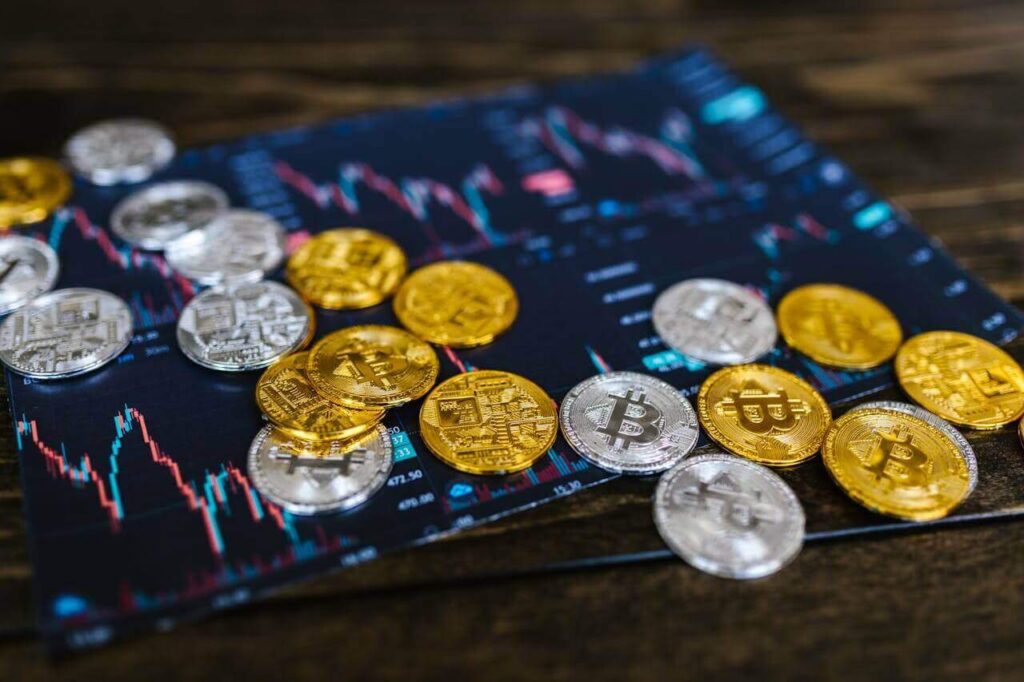In a surprising turn of events, BlackRock’s iShares Bitcoin Trust (IBIT) has now surpassed the company’s long-standing iShares Gold Trust (IAU) in net assets. This is no small feat, considering that the gold ETF has been around since 2005, while the Bitcoin ETF was only launched earlier this year. As of Thursday, IBIT’s assets reached a staggering $33.2 billion, edging out IAU’s $32 billion. The sharp rise in Bitcoin’s value, bolstered by key market factors like former President Donald Trump’s recent election win and significant investor inflows, has driven IBIT’s meteoric growth. But what does this shift mean for investors? Is Bitcoin the new “digital gold,” or does gold still hold its place as a tried-and-true investment? Let’s dive into the details.

Bitcoin may be the new kid on the block, but gold’s timeless value still shines bright—wise investors know there’s room for both.

Bitcoin vs. Gold – A Battle of Assets
Bitcoin and gold have long been compared as competing assets, both serving as hedges against inflation and economic uncertainty. Gold, often dubbed the “safe haven” asset, has been a cornerstone of portfolios for centuries. It’s tangible, it has historical value, and it’s a reliable store of wealth. The iShares Gold Trust (IAU), which has been around since 2005, had a massive head start on BlackRock’s Bitcoin ETF.
Yet, in just a few months, the iShares Bitcoin Trust (IBIT) has caught up. The rapid rise of IBIT’s assets—fueled by a year-to-date Bitcoin rally of nearly 80%—has brought it to a valuation of $33.2 billion, surpassing the gold ETF. So, what’s driving this shift? Bitcoin’s recent price surge, which reached an all-time high of $77,000, played a significant role. Moreover, investors seem to be more comfortable with Bitcoin as a mainstream asset, thanks to regulatory advancements and growing adoption by institutional players. On the other hand, gold has also performed well, increasing its value by 80% this year, but it couldn’t keep up with Bitcoin’s explosive growth.
The question for investors is whether Bitcoin, often referred to as “digital gold,” will continue its upward trajectory or if this surge is merely a bubble waiting to burst.
How Trump’s Election Win Boosted Bitcoin
One of the catalysts behind the recent surge in Bitcoin’s value—and by extension, the rise in IBIT’s assets—has been Donald Trump’s election win. Trump’s victory brought renewed optimism to markets, particularly among investors who anticipate a more favorable regulatory environment for cryptocurrencies. This optimism led to a massive inflow of funds into Bitcoin ETFs, with U.S. spot Bitcoin ETFs seeing inflows close to $1.3 billion in a single day, $1.1 billion of which went directly into BlackRock’s IBIT.
The Trump administration is expected to roll back some of the stricter regulatory measures imposed on the crypto market during the Biden years. This potential easing of regulations has made investors more confident in Bitcoin as a long-term asset, further pushing its price upward. Additionally, the Federal Reserve’s recent interest rate cuts have made speculative investments, such as cryptocurrencies, more attractive compared to traditional assets like gold. As a result, Bitcoin has seen increased demand from both retail and institutional investors.
However, it’s important to note that Bitcoin’s volatility remains a concern. While Trump’s election win has certainly fueled optimism, the broader crypto market remains unpredictable, and investors should be prepared for sudden fluctuations in Bitcoin’s value.
Is Bitcoin the New “Digital Gold” for Investors?
With IBIT surpassing IAU, many investors are wondering if Bitcoin is indeed becoming the new “digital gold.” For years, gold has been the go-to asset for those seeking a stable store of value, especially during times of economic instability. But Bitcoin offers something different: a decentralized, digital alternative that is immune to government control or inflationary pressures.
Bitcoin’s fixed supply of 21 million coins makes it inherently deflationary, similar to how gold’s finite availability has maintained its value over time. As more institutional investors embrace Bitcoin, its status as a legitimate investment asset continues to grow. The launch of Bitcoin ETFs, including BlackRock’s IBIT, has made it easier for mainstream investors to access Bitcoin without the need for direct ownership of the digital asset.
That said, Bitcoin’s volatility cannot be ignored. Unlike gold, which tends to move more predictably, Bitcoin is subject to dramatic price swings. This year alone, its price has ranged from $20,000 to over $77,000. While this volatility can present opportunities for high returns, it also carries significant risks, especially for investors seeking stability.
Ultimately, whether Bitcoin will truly replace gold as the go-to asset for stability remains to be seen. Both assets serve different purposes in a well-diversified portfolio: gold for steady preservation of wealth, and Bitcoin for potential high returns with higher risk.
Final Thoughts: Bitcoin and Gold—Both Have a Place in Your Portfolio
The rise of BlackRock’s Bitcoin ETF and its outpacing of their gold ETF signals a major shift in the investment landscape. Bitcoin, once viewed with skepticism, has now cemented itself as a legitimate asset class, driven by increased institutional adoption and investor confidence. However, that doesn’t mean gold is losing its value or relevance. In fact, gold remains an essential part of a diversified investment strategy, offering stability during times of market turbulence.
So, should you choose Bitcoin over gold? The answer depends on your risk tolerance and investment goals. If you’re seeking potentially higher returns and can stomach volatility, Bitcoin might be a more attractive option in the short term. However, if stability and preservation of wealth are your priorities, gold still stands as a reliable asset.





